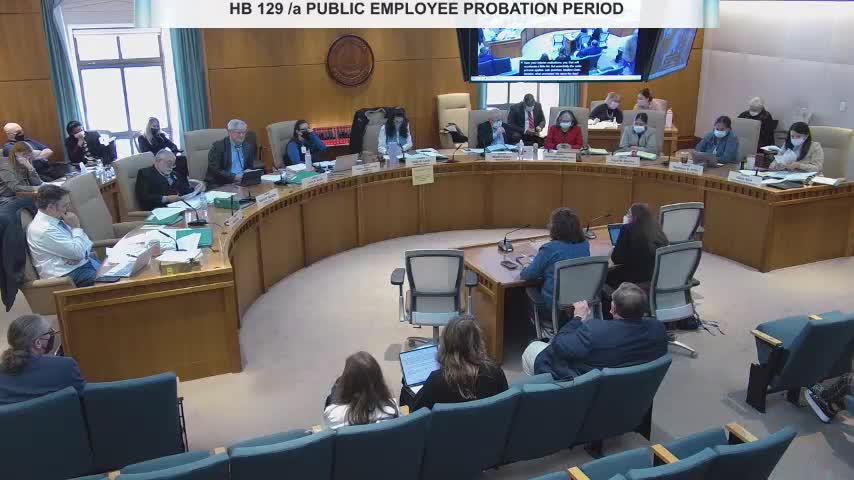Committee advances measure to shorten state employee probationary period to six months
Get AI-powered insights, summaries, and transcripts
Subscribe
Summary
A legislative committee advanced a proposal to shorten the state civil-service probationary period from one year to six months after hours of testimony about training, retention and customer service in state agencies.
A legislative committee on Sunday recommended advancing a proposal to shorten the state employee probationary period from 12 months to six months, following more than an hour of testimony from union representatives, legislators and state employees. Proponents said shortening the probationary term would give new hires quicker access to benefits and help retain staff; opponents and some members urged caution, citing training needs and customer-service concerns.
The bill, as discussed in committee, would amend the State Personnel Act to make certain due-process protections that now apply after one year apply after six months. Lindsey Hurst, executive vice president of Communication Workers of America (CWA) Local 7076, testified that the union represents about 2,700 state positions across 13 agencies and that a large share of new hires leave during probation. “In FY24, 34 percent of new hires did not complete probation, and 75 percent of those chose to resign,” Hurst said. She told the committee that workers on probation lack access to some scheduling flexibility and additional leave that can be important to retention.
Several senators pressed Hurst and other witnesses about training time and differing job complexity across agencies. Senator Block said training timelines vary by position and that six months may be too short for some technical roles; he described examples from his Air Force experience where certification can take nearly a year. Hurst replied that training and interim evaluations typically occur for both probationary and nonprobationary employees and that supervisors use peer review and mentoring to support new hires.
Other members emphasized customer service concerns. Senator Scott described constituent complaints about state offices not returning calls and said the state needs improved staffing and responsiveness, whether probation is six months or one year. Hurst acknowledged multiple factors drive vacancy and turnover, including pay and workplace culture, and said the union’s goal is to increase retention by granting career-status benefits sooner.
Committee members repeatedly distinguished between discussion and formal process. Witnesses explained that probationary employees receive interim evaluations and opportunities to improve; more egregious conduct can lead to disciplinary action at any stage. Committee counsel and witnesses also described the post-probation process: after one year an employer typically issues a Notice of Contemplated Action, giving the employee an opportunity to respond and request a hearing.
After questions and additional discussion, Senator Sandoval Lopez moved a due-pass recommendation; the motion was seconded and the committee recorded a due-pass recommendation (tally reported in committee as 6 yes, 3 no). The committee did not adopt changes that would automatically confer benefits during probation; witnesses said rules and agency policies determine benefit eligibility.
Why it matters: shortening probation would change when many new state employees gain access to benefits and to certain workplace protections; supporters argue the change could improve retention, while critics say it risks moving staff into career status before some longer training cycles are complete.
The bill was left with a committee recommendation to advance. No final statutory text or bill number was specified in the committee record available during the hearing.
